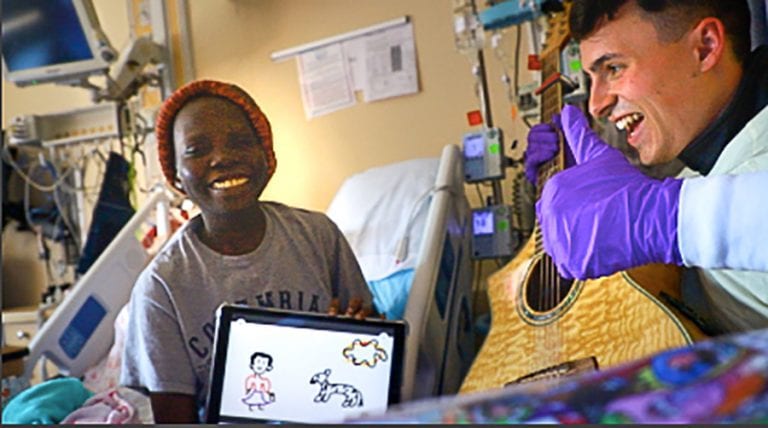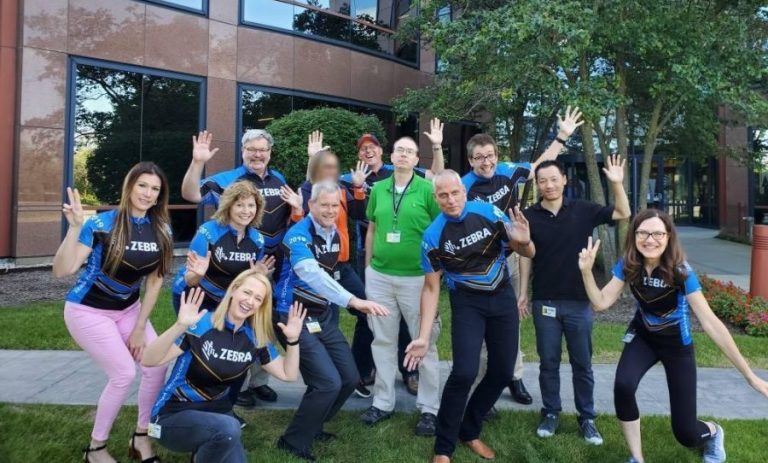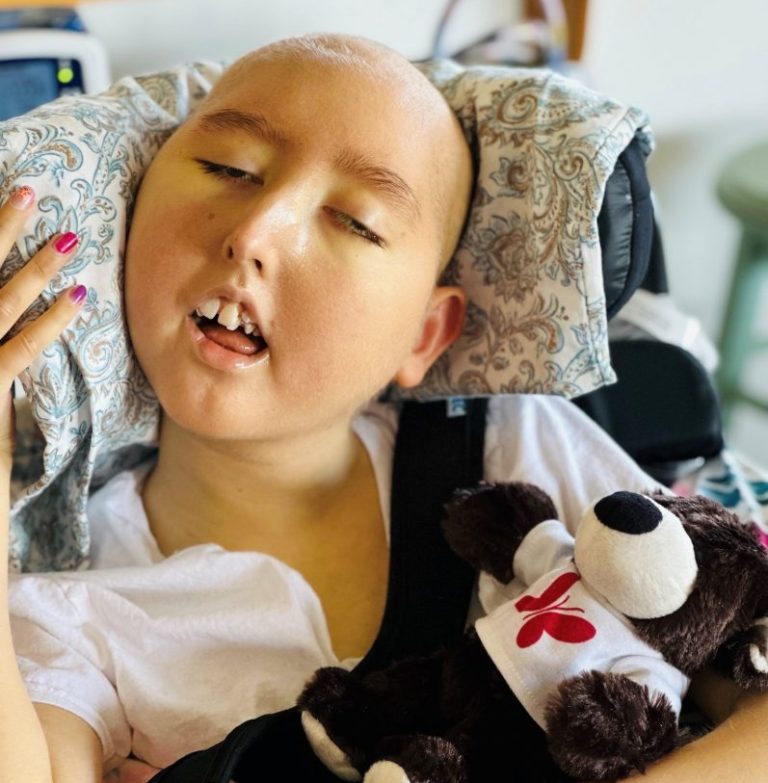Beads hang off Michael’s* IV pole telling what seems to be an endless story of all the procedures he has gone through so far. As I step into the room I can’t seem to break my gaze from the multicolored strands that twinkle above his head, but I look at his face with the respect he deserves.
I have been in this same room many times before as a patient, but now I am returning as caregiver. Michael recognizes my face and he smiles. With great big eyes, he beckons me to step in.
As we pick out his Beads of Courage, one by one, each bead representing a procedure or milestone in his treatment, his mood seems to lighten. Power and strength emanates from his grasp on his beads as he holds on to the representation of his entire journey thus far. As we continue to count I start to become aware of the light in his eyes. His deep brown eyes seem to flicker with energy and strength unlike any others I have seen before.
He has a deep sense of courage within that shines so brightly when he smiles. For a young child to be put through such misery every day and still be able see the beauty in the day is remarkable. But as I get to know Michael through his long multicolored strands of Beads of Courage and our conversations, I feel a sadness— He is lonely.
With parents forced to work during the day, Michael spends a lot of time alone in his room. He needs a friend. Not someone to stare at the scars across his head with bug eyes or to ask about what chemotherapy treatment he’s receiving, but someone to sit with—to watch movies or draw with. When words are too tough to formulate, a simple companion is the biggest comfort of all.
I have come to realize that children who suffer from serious illnesses are forced to mature at incredible speeds. Most of the time children remember their treatments better than their parents do. Reality of life and death can hit so hard when battling a serious illness that you change as a person. You become aware of the little beauties of life, but have a more realistic way of seeing the world. It gets frustrating when people treat you differently because of your diagnosis because you haven’t changed at all—just your perspective on life and your health.
But your health doesn’t define you as a person. Your spirit and your personality do. So I decide to treat Michael the way I would want to be treated: I treat him with respect and with kindness, but never with pity or sadness. He doesn’t want to be reminded of the fact he is sick—he wants to be reminded that he is not alone in his treatment. He wants to be reminded of the beauty outside the hospital walls, or to know that the sun still shines brightly from the early morning until it sets in the evening. There are so many things we forget as we are made prisoner to our IV poles. Sometimes the simplicity of friendship makes time spent in captivity go by quicker, especially if the friend brings a positive spirit. I think we all need a little boost of encouragement from time to time to rekindle hope, determination and courage.
*names have been changed for patient confidentiality.
Beads of Courage
Children’s Cancer Research Fund is proud to support the Beads of Courage program through Care Partners. Beads of Courage is a program designed to honor the journey children take when they are diagnosed with cancer and other life-threatening illnesses. Children tell their stories using colorful beads that symbolize the milestones they reach along their journey.
Written by Angeline Fahey
Angeline Fahey, 21, was diagnosed with osteosarcoma during her freshman year of college. Today, she’s determined to live a life of joy despite the obstacles of cancer.



